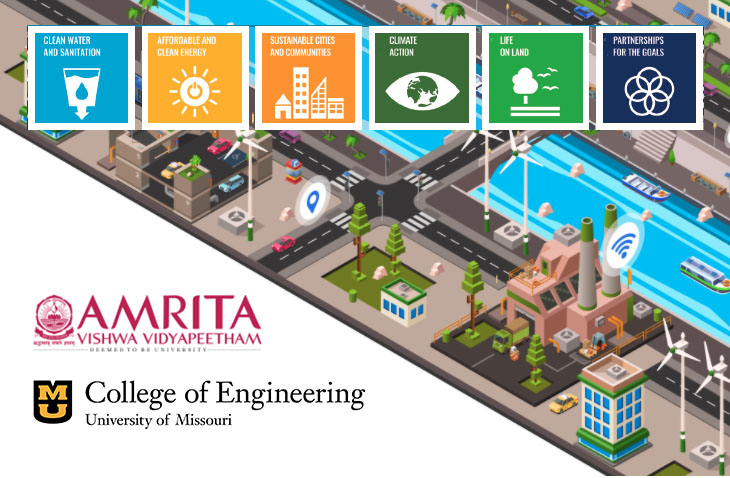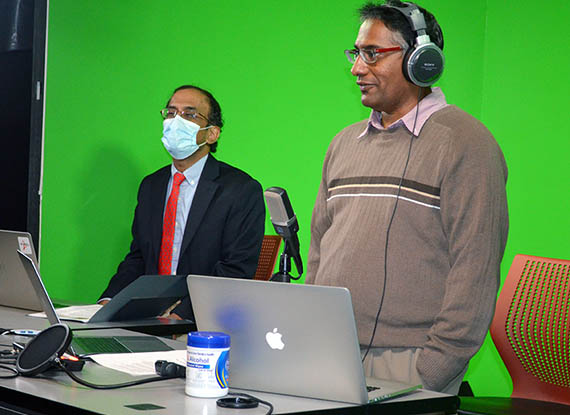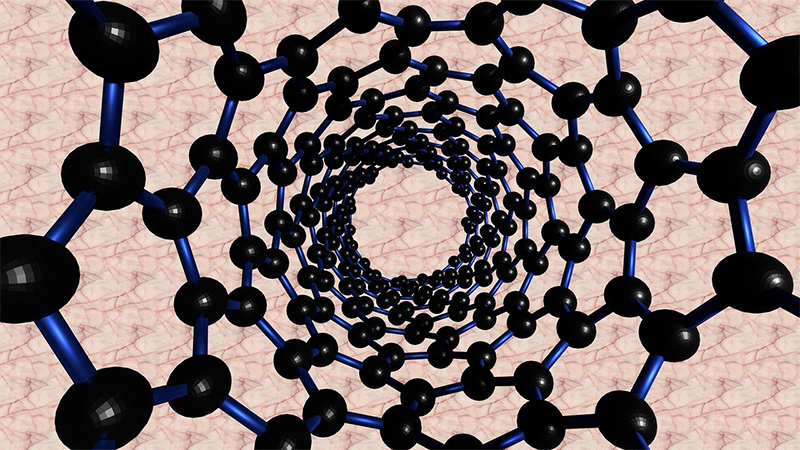
Rao Invited to Serve on Environmental Health Sciences Review Committee
Praveen Rao has been invited to serve as a member of the Environmental Health Sciences Review Committee, which serves as an advisory board to the National Institutes of Health (NIH). Members are appointed for a 3-year term.

Partnership with Amrita Kicks off with International Symposium
Mizzou Engineering has formed a partnership with a top-ranked university in India to foster collaboration among researchers and students. The partnership between Mizzou and Amrita Vishwa Vidyapeetham aims to promote cooperation through joint research and publications, international initiatives, training programs and student exchanges.

Mapping the Cities of the World One Building at a Time from Space
A group of four computer science PhD students in the Computational Imaging and VisAnalysis Lab at Mizzou Engineering took the top spot in the graduate student category at the 24th Conference on Neural and Information Processing Systems SpaceNet 7 competition.

Meet Shubhra Gangopadhyay
Sometimes, before you can think big, you have to think small. After all, you can’t tackle the big problems without interacting with the microscopic molecules, electrons and atoms that make up our world. Meet Shubhra Gangopadhyay, professor, researcher and inventor of teeny-tiny technologies.

Fales, Guidoboni Named Associate Deans
Mizzou Engineering has two new associate deans committed to student success and research excellence. Interim Dean Noah Manring named Roger Fales associate dean of student services & academic programs and Giovanna Guidoboni associate dean for research.

Mizzou Engineering Hosts Virtual AIPR Conference
Mizzou Engineering hosted the 49th annual Applied Imagery Pattern Recognition (AIPR) conference last week, proving that a virtual event can be just as robust as meeting in person.

NSF Project to Advance Edge Computing
Edge computing has the potential to make our computers and devices run smarter and faster. Right now, though, the technology is in its infancy and not ready for prime time.

Mizzou Team to Use AI to Grow Carbon Nanotubes in Mass Quantities
A team of Mizzou Engineers is turning to artificial intelligence (AI) to help grow and control large quantities of carbon nanotubes—tiny, cylinder-shaped molecules made of rolled sheets of carbon. Using AI is a novel approach to mass producing them, a problem that has plagued scientists for decades. Now, the National Science Foundation is backing the idea with an award funding the group’s research for three years.

Site Connects Users to Reliable Information About COVID-19
Looking for reliable information about COVID-19? Want to access articles quickly without having to sort through hundreds of journal articles? You’re in luck. Graduate students at Mizzou Engineering have developed a tool to help you sift through resources fast.

Past Participants Tout Benefits of REU Program
Students from across the country will spend the next 10 weeks developing consumer networking skills. It’s part of a Research Experiences for Undergraduates, or REU, program at Mizzou Engineering funded by the National Science Foundation. And for some, it’s life changing.